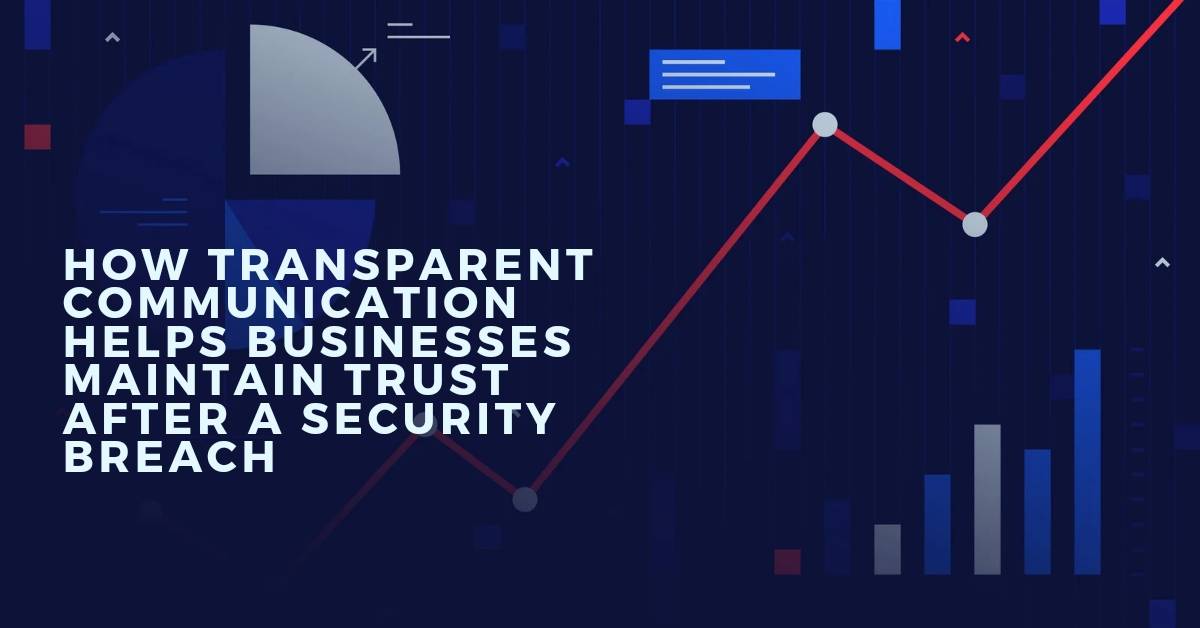Security breaches pose a significant challenge for modern businesses, impacting both operations and public image. The average data breach now costs $4.88 million, reflecting not only direct financial damage but also longer-lasting effects such as diminished trust and customer loyalty loss.
In this challenging environment, clear communication is essential. It helps lessen the negative effects of breaches. Communicating effectively after a breach is crucial for maintaining customer trust and is a key part of a business’s recovery plan, making transparency essential rather than optional.

The Role of Specialized PR Agencies
When a security breach occurs, specialized PR agencies play a crucial role. They are skilled in crisis communication, knowing exactly how to manage sensitive information and talk to the public during tough times. Their main job is to influence how people view the situation, helping the business maintain its credibility.
For instance, if your business is centered around cybersecurity, partnering with a cybersecurity PR agency knowledgeable in this field can prove advantageous. Such agencies grasp the technical nuances and legal aspects, ensuring their communications comfort all parties and demonstrate a firm resolve to fix the breach. Their expert support is vital for keeping trust and transparency during challenging moments.
Immediate Disclosure
As soon as a security breach is discovered, it’s essential to inform everyone affected right away. Quick communication is crucial. Delaying this disclosure can lead to legal issues and harm the trust customers place in the business.
By promptly notifying stakeholders, a company shows it takes responsibility and cares about user privacy, which can help lessen any damage to its reputation. Fast disclosure also portrays the business as proactive and responsible, which regulatory bodies are likely to appreciate. Additionally, it gives those impacted the information they need to safeguard themselves from possible fallout.
Clarity and Honesty in Communication
Following a security incident, how you relay information is as vital as the information itself. Companies need to be clear and straightforward about what happened, which data was impacted, and the method of the breach. They should avoid complex technical jargon that might confuse those who aren’t familiar with technology.
Using simple language makes sure that all those impacted can grasp the significance of the breach and what actions are being taken to rectify it. This straightforward approach builds trust and upholds the company’s reputation in times of crisis. Clear and thorough communication reduces the feelings of uncertainty and confusion among those affected.
Ongoing Updates
As events progress and more details emerge, it’s crucial for a company to maintain open lines of communication. Keeping everyone informed through regular updates signals that the company is actively handling the situation and striving for a resolution. These updates might include posts on the company’s website, press releases, or direct emails to customers.
This approach does more than just keep stakeholders updated; it also helps manage the story surrounding the event. By providing timely information, the company can prevent rumors and incorrect information from spreading due to a lack of communication. Moreover, consistent updates show a dedication to being transparent, which can help maintain a stable view of the company.
Engagement With Stakeholders
Talking directly with customers, investors, and other key groups is vital for building trust. Companies should promote conversations through social media, customer support, and public discussions. This openness shows that the company values transparency and is ready to listen and respond to concerns.
By doing this, the company can quickly tackle any misinformation or rumors and maintain open communication. Direct interaction makes the organization feel more approachable and less impersonal. This approach can effectively ease frustration and help rebuild confidence among stakeholders.
Future Prevention Measures
It’s crucial to communicate not just the immediate response but also the steps being taken to prevent future incidents. Companies should share information about improvements in their security protocols and any new collaborations with security firms. Talking openly about these initiatives can rebuild trust and show stakeholders they are serious about protecting their information.
It’s useful to detail the specific steps being taken to improve security, which gives stakeholders a clear and confident understanding. Mentioning new technologies or updated training programs for staff can further demonstrate the company’s proactive approach to avoiding future issues.

Final Thoughts
Clear communication isn’t just a way to respond after a security breach; it’s essential for keeping trust and credibility intact. How well a company communicates can determine whether it bounces back or faces lasting harm to its reputation.
By providing timely and straightforward updates, keeping stakeholders informed, engaging with them directly, and actively working to improve security’s , businesses can effectively handle the tough period after a breach. Building trust in this manner goes beyond just crisis management—it’s an investment in the company’s long-term stability and growth.
Thanks for visit easy technology.





































